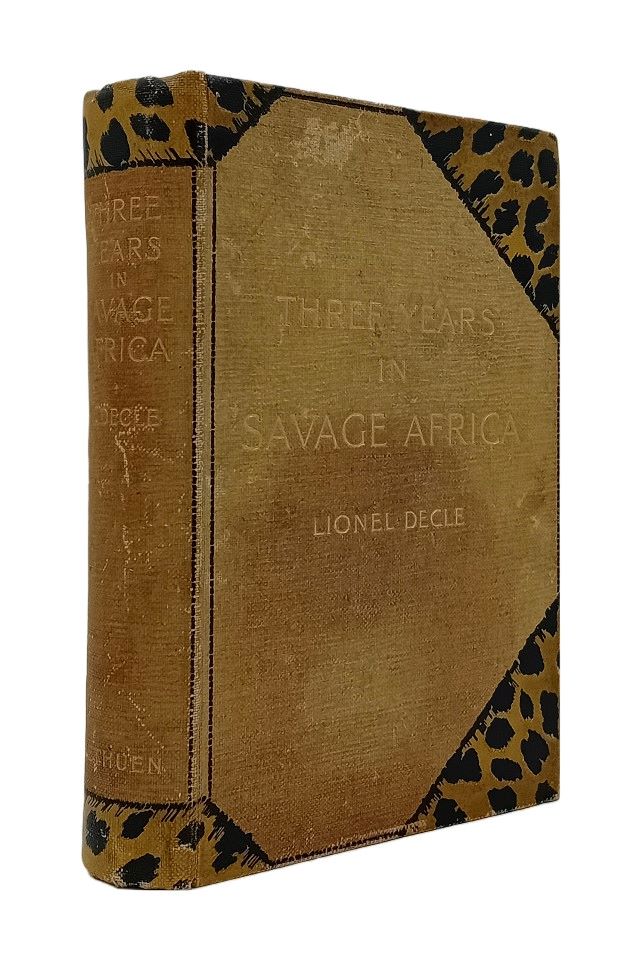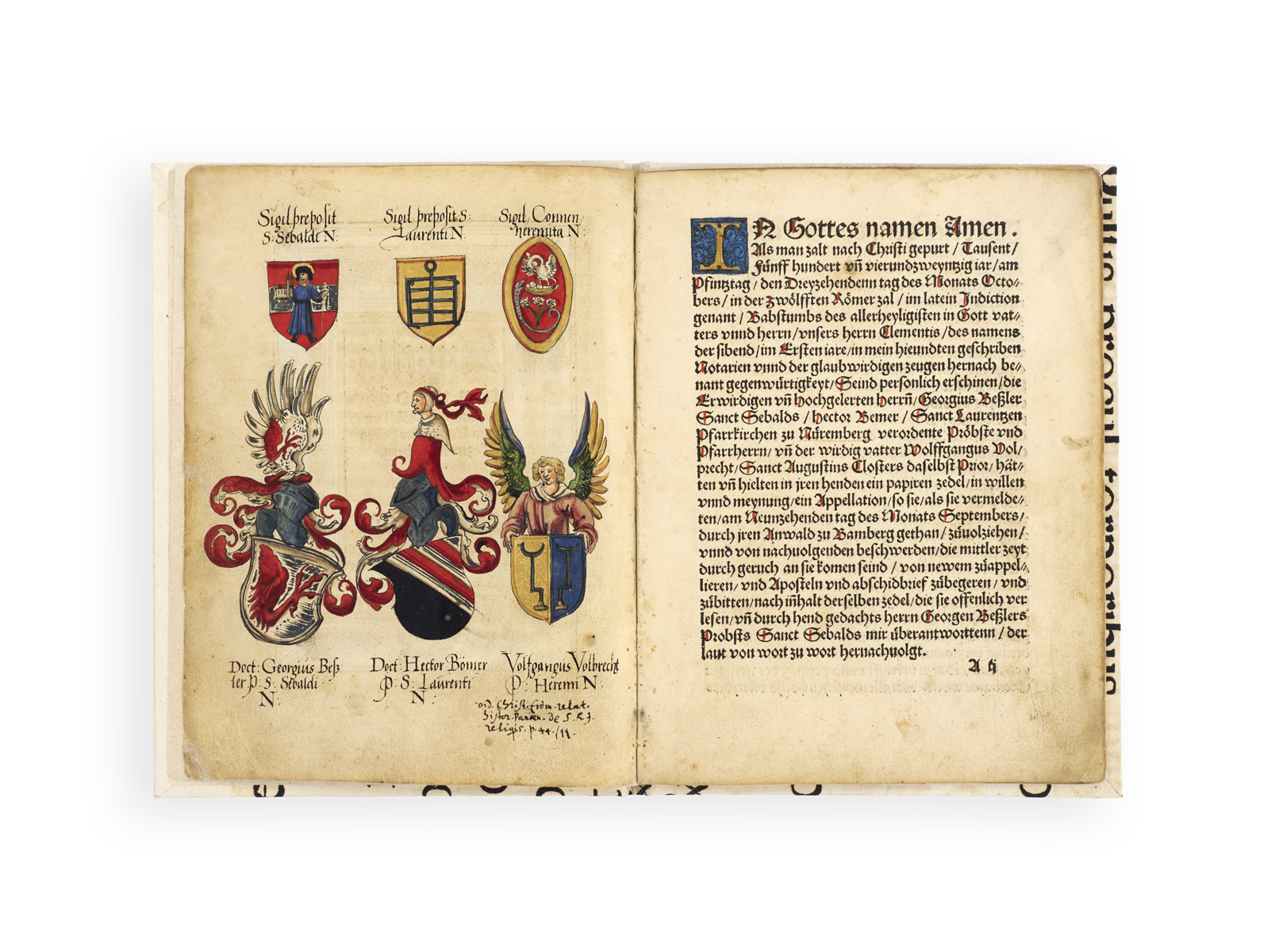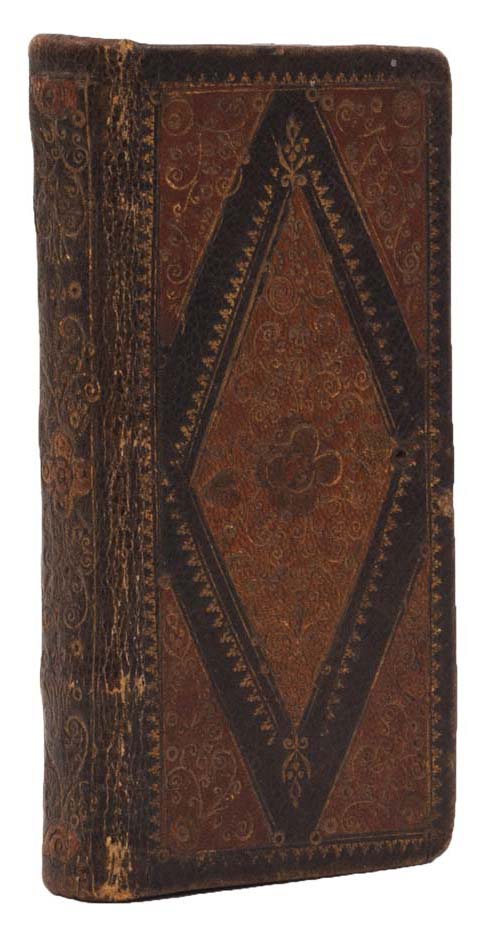
a Frenchman in support of the ‘greatest nation in the world’
DECLE, Lionel.
Three years in savage Africa … With an introduction by H.M. Stanley, M.P. With 100 illustrations and 5 maps from original photographs, sketches, and surveys by the author.
London, Methuen & Co., 1898.
8vo, pp. xxxi, [1], 594, 40 (publisher’s catalogue); with half-title, photographic frontispiece of the author, 3 coloured maps (2 folding), 2 additional maps and 105 illustrations (some full-page) in the text; title toned from tissue guard, occasional light foxing, closed tear to first folding map (without loss, repaired to verso); good in original cloth with leopard print to corners and spine ends; somewhat marked and worn; ownership inscriptions to front endpapers dated 1898, 1946, and 1977.

Added to your basket:
Three years in savage Africa … With an introduction by H.M. Stanley, M.P. With 100 illustrations and 5 maps from original photographs, sketches, and surveys by the author.
First edition recounting the author’s 7000-mile journey from Cape Town to Mombasa – ‘the longest journey that has yet been achieved at one stretch from the Atlantic to the Indian Ocean’ – in order ‘to study the ethnology and anthropology of the interior tribes’.
‘The author, a Frenchman by birth, domiciled in England, was entrusted by the French Government with the carrying out of an expedition for scientific purposes, and he was instructed “to proceed to South and East Africa to study their ethnology and anthology [sic]” … the results of his researches are embodied in the contents of this volume, which, however, are by no means confined to a description of the south-eastern parts of the continent’ (Mendelssohn). Reaching Cape Town in May 1891, and with the assistance of Governor Sir Henry Locke and Cecil Rhodes (to whom the book is dedicated), Decle set off north via Kimberley and Vryburg, proceeded though Palachwe and Khama (which he intensely disliked), crossed the Zambesi, traversed the Khalari, described the Victoria Falls, and visited numerous cities in Matabeleland.
Czech, who cherishes his African travel literature not for the adventures of the explorer nor the observations of the anthropologist but for the deadly crack of the hunter’s rifle, notes that in Decle’s narrative ‘there are a few instances of hunting antelope, rhinoceros, and lion in Uganda, usually with little luck’. On the whole, however, Decle’s account is largely filled with numerous, sometimes very unflattering, descriptions of local tribes and religious customs, as well as a staunch pro-British stance to colonialism: according to Decle, ‘Great Britain…has justified her right to be in the country by developing every spot where the Union Jack has a right to fly, and she alone understands how to colonise’. In response to the distinctly cold reception his work therefore received in France, Decle diplomatically retorted that Britain was ‘the only nation where individual liberty, broad-minded ideas, and true civilization really exist; a nation that throws its doors wide open to all, irrespective of nationality or creed – in a word, the greatest nation in the world’ (p. 4).
The work also features an introduction by Henry Stanley.
Czech, p. 46; Mendelssohn I, pp. 427-8.

